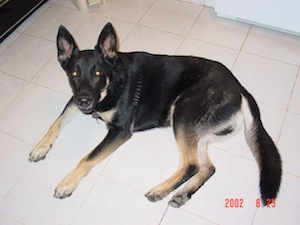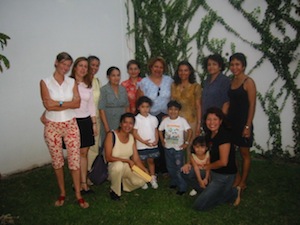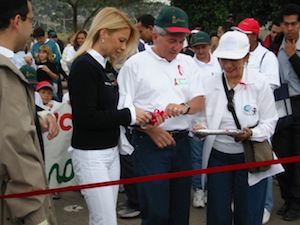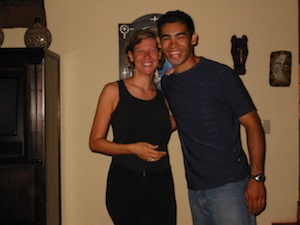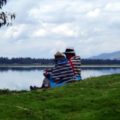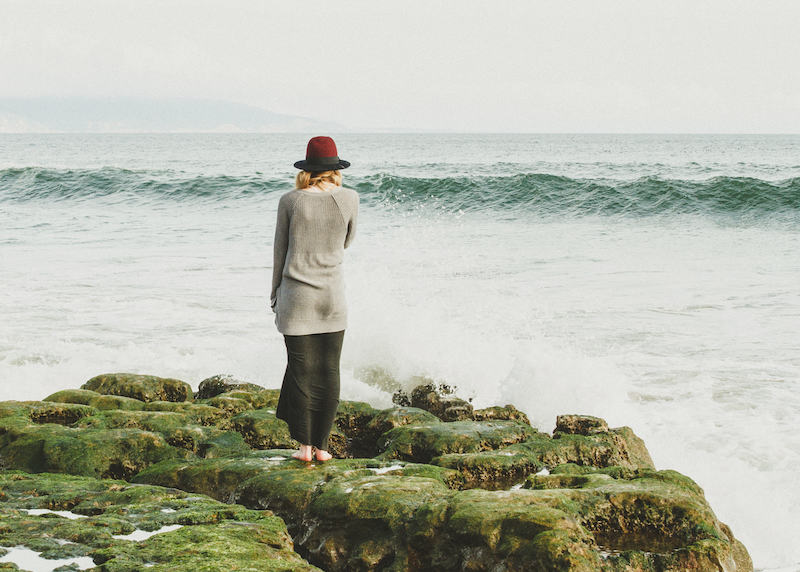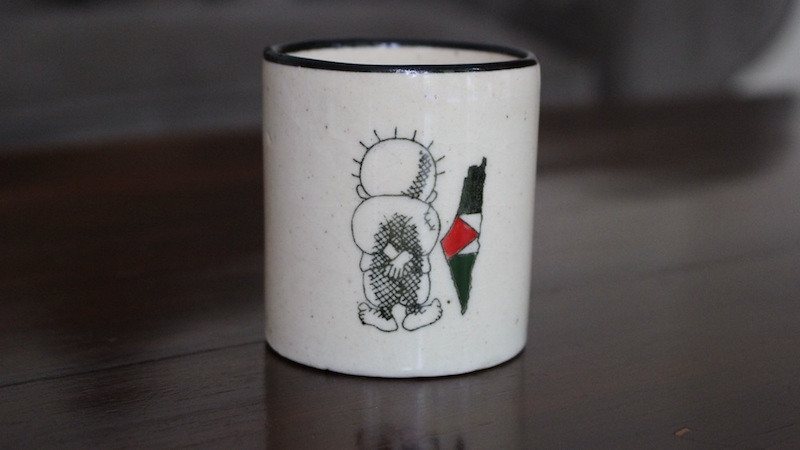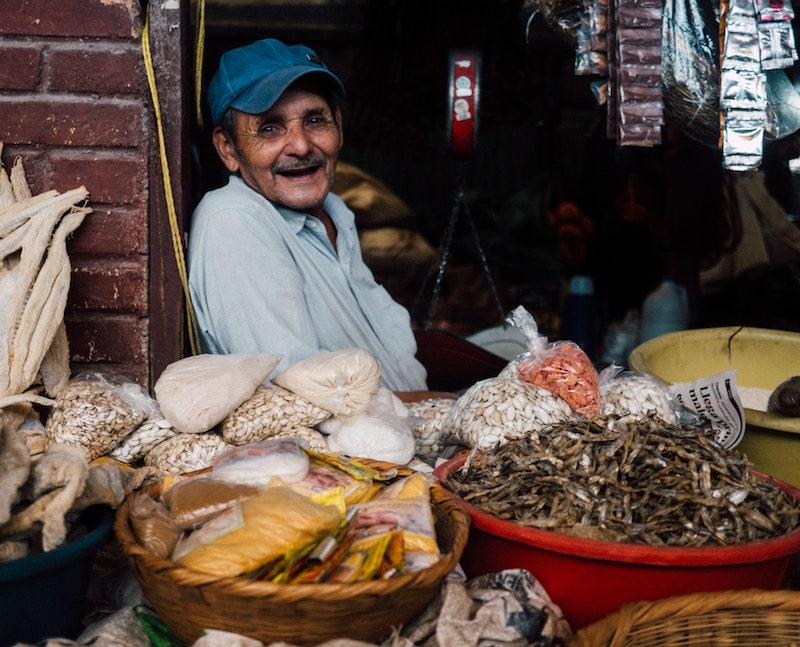
Claudiaexpat fondly remembers her period in Honduras, to tell us what strategies she used to “survive” 🙂
I lived in several African countries from 1989 to 1997 and I’ve had a great time (except in Angola, where it was a bit more difficult). When in 1999 we moved to Honduras, I had a real culture shock. I will not dwell here on the reasons why the impact of Latin American culture was so strong for me. I just want to point out that the first time in my new country was particularly intense for this reason.
At the time (more than ten years ago, but I do not think things have changed drastically) in Tegucigalpa, and a bit all over Honduras, there was really nothing exciting, whether on a cultural or professional level.
Obviously the first things we try to understand in our new country are related to quality of life, safety, culture, chances to do things as a family, couple or individually, the variety on offer at different levels etc… Arriving in Tegucigalpa I had the illusion of finding a lively cultural life. This would compensate at least partly the pain of having said goodbye to my beloved Africa. Unfortunately I was wrong. I soon discovered that in Tegucigalpa there were only two bookstores: one downtown (where it was strongly advised not to go because of the attacks), with a limited selection focused primarily on publishing houses in Latin America, and another which was also a video rental, that had six titles in English at most.
Cinemas abounded (and I know that after my departure more have been opened), the classic multi halls that stink of popcorn and with a selection of movies that went from Rambo to Exterminator and rarely more. No trace of cultural centers. Ah yes, there was a small French Alliance, that at my arrival organized one event per year. There was a nice theater, where I may have gone six times in four years (and I assure you that I did not miss a show), and the only nice place to take the kids to do something creative, Pintame, where you could paint a piece of pottery, and bring it home all shiny, closed its doors shortly after my arrival.
As for sports, there was (again, when I arrived) a nice gym, and I really have nothing critical to say about it, because in addition to having a beautiful pool, they also organized various interesting courses.
Sunday outings? Valle de Angeles and Santa Lucia were the only places where to spend the day, thank God there were some good restaurants where, despite the mediocre Honduras cuisine, we ate very well; by the third Sunday though, we knew by heart even the pavements, and the excitement had gone.
To be honest, I recognize that this never really weighed heavy on my heart; once past the culture shock, I was happy in Honduras, as in all other countries where I lived. But I had to work for this happiness little by little; I had to look for things to fill my days, to motivate me to get up and leave home.
At that time I had not yet established Expatclic, and Tam tam femme, my first network to help expatriate women in Africa, suffered a bit since my departure from the continent; I also had no presentable website, which would have put me in contact with people from all over the world, as is the case now with Expatclic. I was not working, because my husband’s contract prevented me from doing so, the only “hidden” paid opportunities that I found were paid so little that I did not even considered them; the children were at school for most of the day. How then “survive” in this situation and in Honduras?
Firstly, the house
We chose a nice place to live (in the middle of a forest) that made me feel good every time I looked out of the window. It was a calm, beautiful place, with lots of greenery and tranquility. I think the choice of the house is particularly important when living abroad, especially when our hosting country is not the most exciting in the world.
Second, my dog
We found Mitch in Honduras, a beautiful German Shepherd puppy who became part of our family at the age of two months. Although, of course, it did not really fill my days, the presence of a loving puppy set the tone with warmth and joy at the beginning of my stay. A pet is not only important in the adventure of expatriation for the whole family, but it can also be a great source of joy and camaraderie at the beginning (and the end).
Third, my Spanish lessons
I did not speak a word when I arrived, I used a mixture of Italian, Portuguese and vamos a la playa, and it made communication miserable and made me feel more isolated. So I immediately checked if there were teachers who gave private lessons. I found a great one, who gave me lessons on the other side of the city, which took me a whole morning to get there, take the course and come back. The contact with Liliana, although sporadic, gave me a big boost, because while learning Spanish, I spoke with a local woman, who told me a number of things important for my daily routine.
Once these basic things were arranged, I started to look for people who could enrich my circle of friends. Of course, like all mothers of young children, I started with my sons’ school. I found fairly quickly a couple of Honduran parents who were particularly nice, with whom, however, I had to wait some time before starting seeing them outside of school.
The circle of expatriates was not great, but I found someone, and that someone (a beautiful lady from Niger, with whom I have never lost touch) introduced me to the legendary CODOI, Comité de Damas de Organismos Internacionales (Committee of Wives fo International Organizations). It helped me a lot in a time when I was looking for something that gave meaning to my days with regard to the country where I was staying. I must say that the first time I went to a meeting of CODOI, I was not at all convinced I wanted to become part of it – it seemed to be a committee of old ladies (at that time I was still young enough ☺), red lipsticks and swollen purses, devoted to the preparation of Christmas parties for the orphans (and this is something that I’m a little allergic to), but I quickly changed my mind. Behind these determined, highly motivated and dynamic ladies there were some really interesting projects, pursued with love and commitment.
In particular – and this coincided with my term as president of the association – we supported the pediatric department of burnt patients in the largest public hospital in the city. We used the money we collected in various ways (including funding from the Canadian government) to provide what public funds could not do. It was not a simple transfer of funds, we connected (at least I did, but certainly it was the same for many ladies of the association) at a very intimate level with burnt children, their families and the – outstanding – medical staff, through which we approached things and needs that we did not know about before.
We saw dozens of families of the victims of fire accidents, reorganized a beautiful space within the department, that children could use to play, exercise and leave the sadness of their hospital bed for a while, and worked with the pediatric AIDS department, which prompted us to organize a march to educate the public about the virus; at this walk we even managed to involve the then President of the Republic with his first lady! This made me really proud and feel close to the Honduran people, and I learnt a lot about the local situation.
And then of course there was dancing! A revelation to me, a shock, an activity that conquered me in a way that I would have never expected, and that went well beyond the mere exercise. Honestly, I do not even remember how or why I got to it, I’ve never been a fan of dance in general, and I’m not too sporty. Maybe someone had told me about it…? One day I went (again with the famous friend from Niger) to watch a lesson in this small school run by a Cuban married to a woman from Honduras. I thought the dance was really complicated, but I immediately liked the intimate atmosphere of the place. I got started and although at first I could not move a foot, let alone two (I’ve talked a bit about it here), after a few months I started to see results, and especially have fun like crazy. I went there every day, I moved to the rhythm of the music, I was unloading and remained cheerful throughout the day.
It is also through the dance that I made many friends and I created strong relationships with the teachers: Osmel and his wife, the owners of the school, who also had a restaurant of Cuban cuisine, that became a very pleasant meeting point for passionate dancers, and then there was José, our Garifuna teacher, a young dancer of incredible intelligence, and Miguel, a sensitive young man with whom an extraordinary friendship was born, who keeps in touch to this day. With the teachers and the group of friends we often went to dance, we did all the hottest salsa places in town, and we really had a lot of fun. I can not think of the Honduran period without remembering the wonderful adventure of Latin dance, and all the human capital that I have built around it.
You can imagine how full my life was in Tegus: between dance, CODOI, the children’s school (I was a parents’ delegate so I participated actively in meetings, etc.), children who grew wonderfully, and the beautiful friendships that I had created, I not only survived in Honduras ☺ but I took away some really good friends and memories that even now, years later, continue to warm my heart.

